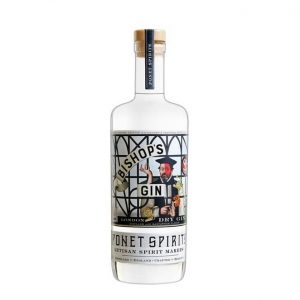Fast-moving consumer goods (FMCG) are a key domain for market research. The B2C target, the wide range of product categories, and the pace of innovation explain why companies conduct frequent analyses. Our "Foods & Drinks" practice has existed since 2008 and we have supported numerous European manufacturers in their development and commercialization phases.
Contact IntoTheMinds for your FMCG market research
Our market research services in the FMCG sector
- Covered territories: all European countries + United States and Canada
- Types of studies: pre-tests and post-tests, trend studies, brand awareness study, needs analysis, pre-launch testing, pricing study, packaging validation, …
- Budget: from €7500 excl. VAT
- Study duration: from 6 weeks for quantitative studies on B2C panels

Astrid Hoffmann-Leist, Chief Marketing and Innovation Officer & Business Director APAC, United Caps
“United Caps has been working with IntoTheMinds since 2017. Pierre-Nicolas and his teams have carried out several consumer studies for us across multiple markets in Europe and Asia. We appreciate IntoTheMinds’ ability to find solutions for all projects, even the most complex ones. The teams combine their expertise with great flexibility and creativity to always find the smartest approach in collaboration with us. I highly recommend IntoTheMinds’ services as a partner for market research and consumer insights.”
Use cases for an FMCG / fast-moving consumer goods study
The FMCG sector is perhaps the one with the highest number of use cases:
- Pre-tests and post-tests for media campaigns: this type of study is of course not limited to the FMCG sector, but since it accounts for about 20% of global media spending, it is a very common use case.
- Brand awareness study and brand tracker: these two types of studies share the same goal—monitoring your brand’s evolution. The awareness study focuses on the strength of your name in the market, while the brand tracker includes additional dimensions.
- Product launch and needs assessment: innovation and new product launches are at the heart of many FMCG verticals. In the food sector, for instance, it’s estimated that 30,000 new products are introduced each year. 80% will be withdrawn before the 12th month. Market research is therefore essential to increase your product’s survival chances. It often takes the form of consumer testing during development (via interviews or focus groups), and quantitative surveys as commercialization nears (packaging choices, optimal price definition).
- Pricing study: the FMCG sector is highly competitive. Prices must therefore be carefully studied: they must maximize margins without driving away customers. Striking the right balance is essential. To determine the right price, we use quantitative methods and conduct ad hoc analyses. The two methods we use most are the conjoint method and the Van Westendorp method.
Contact IntoTheMinds for your FMCG study

Key considerations
Beyond selecting the right methodological approach, the main consideration in FMCG market research is choosing the right respondents. By that, we mean respondents whose profiles truly match the brand’s target. Whether the study is qualitative or quantitative, it’s essential to properly screen participants.
Budget
FMCG studies based on quantitative samples start at €7500.
Request a quote for your study
Examples of market studies conducted for the FMCG sector
- AOECS is the European organization that manages the "gluten free" label. We were commissioned to carry out a large-scale study in 6 countries (4 European countries, Mexico, and the United States) on the perception of the label among consumers of gluten-free products. We used a sample of 1,500 respondents, divided into segments based on consumption profiles. To measure the monetary value of the label, we introduced an innovative method based on image manipulation. An "in between" experiment was conducted with groups of respondents exposed to different visual stimuli.
- We carried out a study for Consom'Action on the perception of bulk sales of food and non-food products. This study made it possible to understand trends in bulk sales, as well as the obstacles to its development. It was conducted in Belgium with a panel of 1,000 consumers.
- Bishop Gins was launched based on a market study we conducted using a mixed qualitative and quantitative approach. We first immersed ourselves in the world of gin enthusiasts to understand their expectations and shape the product accordingly. A quantitative study was then carried out to identify the most promising customer segments and validate the packaging.
- United Caps is one of the largest manufacturers of caps for food containers. We carried out multiple studies in the context of the 2019 European directive requiring manufacturers to ensure that caps remain attached to plastic bottles. We conducted quantitative studies based on 3D models and videos at an advanced stage of design, before shifting to qualitative methods for prototype testing. These multiple projects spanned several years and helped ensure that the products brought to market were those that best met consumer expectations.

